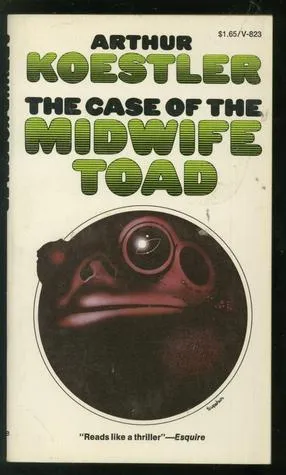The Case of the Midwife Toad
By (author): "Arthur Koestler"
Publish Date:
1971
ISBN0394718232
ISBN139780394718231
AsinThe Case of the Midwife Toad
Original titleThe Case of the Midwife Toad
s/t: A Scientific Mystery RevisitedDuring his 30-plus years of writing, Arthur Koestler has covered a wide range of modern problems from brainwashing in totalitarian societies to the conflict between science & religion &, most recently (in The Act of Creation & The Ghost in the Machine), humanity's potential capability for evolutionary development thru both natural & artificial means. It isn't surprising then that Koestler should hark back to the opprobrious case of Dr Paul Kammerer, an Austrian biologist whose controversial experiments on the evolutionary process (using among other amphibians the midwife toad, so named for its mating habits) were denounced as fraudulent in 1926 by an American herpetologist, G.K. Noble, in the pages of Nature-- whereupon Kammerer blew his brains out, seemingly confirming the old saw "confession is suicide & suicide is confession." But Koestler's investigation, begun as a study of a scientist who betrayed his commitment to truth, indicates that Kammerer, far from being a laboratory quisling, was probably innocent; a victim of an unknown colleague's machinations to discredit his work & therefore in the larger sense a casualty of the still unresolved war between the nco-Darwinist evolutionists who support the random mutation theory & the heretical Lamarckians who maintain (as did Kammerer's experiments) that acquired characteristics can be transmitted from one generation to another. "I did not start with the intention to rehabilitate Paul Kammerer," says Koestler, "but I ended up with an attempt to do so." In the course of that effort he uses his skill as both inventive fantast & experienced researcher to give the midwife toad case a sense of drama & veracity. Those who found The Double Helix satisfying will enjoy this one too, no matter if they agree with Koestler's conclusions.--Kirkus (edited)
